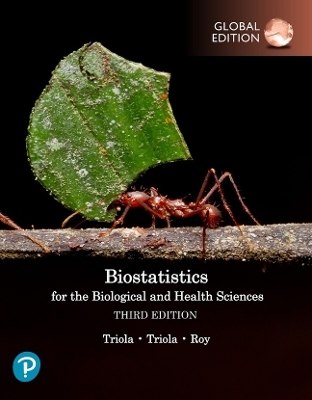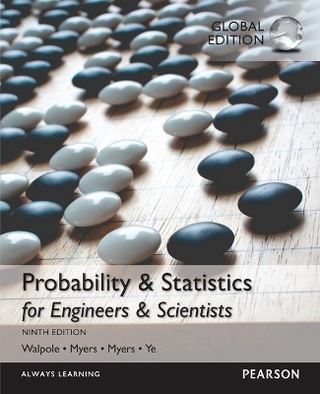
Statistics for the Social Sciences
Academic Press Inc
978-0-12-751540-3 (ISBN)
- Titel ist leider vergriffen;
keine Neuauflage - Artikel merken
This book not only provides a simple description of the basic concepts and principles of statistical analysis for the social sciences, it also points to failures of methods and offers ways to correct such problems. For example, it was once thought that standard hypothesis testing procedures for means have relatively high power under nonnormality. Many studies have since demonstrated that power can be very low even with very slight departures from normality. This bookexplains how and why such departures can occur.
Statistics for the Social Sciences goes beyond the typical introductory material on probability and statistical inference to incorporate modern topics of critical importance in social science research. The text includes coverage of such topics asrobust methods for comparing measures of location; modern regression techniques; recent developments associated with heteroscedastic procedures; the latest developments in nonparametric statistics; and a full chapter on multiple comparison procedures.
The accompanying disk contains more than 150 easy-to-use Minitab macros that provide the student with state-of-the-art statistical methods not available in standard statistical packages. Once the data are read into Minitab, a single command provides access to more powerful, more flexible, and more accurate statistical procedures.
Rand R. Wilcox has a Ph.D. in psychometrics, and is a professor of psychology at the University of Southern California. Wilcox's main research interests are statistical methods, particularly robust methods for comparing groups and studying associations. He also collaborates with researchers in occupational therapy, gerontology, biology, education and psychology. Wilcox is an internationally recognized expert in the field of Applied Statistics and has concentrated much of his research in the area of ANOVA and Regression. Wilcox is the author of 12 books on statistics and has published many papers on robust methods. He is currently an Associate Editor for four statistics journals and has served on many editorial boards. He has given numerous invited talks and workshops on robust methods.
Why Learn Statistics? Describing Data: Frequency Distributions. Histograms. Stem-and-Leaf. Measures of Location. Measures of Dispersion. Boxplots. Macros trim20.mtb, trims1.mtb, winsor.mtb, and winsors1.mtb. Exercises. Probability: An Axiomatic Approach. A Graphical Approach to Probability. Conditional Probability. Independence. Exercises. Discrete Random Variables: Expected Values. Random Sampling. The Population Variance. The Binomial Probability Function. Exercises. Continuous Random Variables: The Probability Density Function. The Normal Distribution. Contaminated Normal Distributions. The Beta Distribution. Exercises. Sampling Distributions: The Distribution of the Sample Mean. The Chi-Square Distribution. Central Limit Theorem. Standard Error of the Sample Median. Introduction to Computer-Intensive Methods. Exercises. Hypothesis Testing and Confidence Intervals: Confidence Intervals for the Population Mean. Confidence Interval forthe Population Median, (. Confidence Intervals for the Trimmed Mean. Testing Hypotheses about the Population Mean. Type II Errors and Power. Power and Heavy-Tailed Distributions. Two-Sided or Two-Tailed Tests. Testing Hypotheses about Means, ( Unknown. Confidence Intervals versus Hypothesis Testing. Testing Hypotheses about the Trimmed Mean. Testing Hypotheses about the Median. Controlling Power, ( Unknown. Exercises. Comparing Two Independent Groups: Students t-Test. Welchs Procedure. Comparing Trimmed Means. Comparing Medians. One-Step M-Estimators. Choosing a Procedure. Transformations. Measures of Effect Size. Graphical Measures of Effect Size. Comparing Measures of Dispersion. Exercises. ANOVA: Comparing Two or More Independent Groups: The ANOVA F Test. Handling Unequal Variances. More on Power and Sample Sizes. Random Effects Model. Comparing Trimmed Means. Comparing Medians. Comparing One-Step M-estimators. Choosing a Procedure. Exercises. Two-Way Designs: Basic Features of a Two-Way Design. Handling Unequal Variances. A Two-Stage Procedure. Random Effects. Using Trimmed Means. Concluding Remarks. Exercises. Comparing Dependent Groups: Comparing Two Dependent Groups. Steins Procedure for Controlling Power. Extension to More than Two Groups. Comparing Trimmed Means. Comparing Medians. Comparing One-Step M-Estimators. Comparing Deciles. Some Concluding Remarks. Exercises. Multiple Comparisons: Pairwise Comparisons with Equal Variances. The Tukey and Tukey-Kramer Procedures. Dunnetts T3. Games-Howell Procedure. Multiple Comparisons versus an Omnibus Test. A Step-down Procedure. Linear Contrasts. Orthogonal Contrasts. Multiple Comparisons for Dependent Groups. Controlling the Lengrh of Confidence Intervals. Comparing Trimmed Means. Comparisons of One-Step M-Estimators. Comments on Two-Way and Higher-Way Designs. Some Concluding Remarks. Exercises. Correlation and Regression: Correlation. Least Squares Regression. Inferences about (<->1and (<->0. Diagnostic Tools. Robust and Resistant Regression Lines. Dealing with Nonlinear Relationships. Multiple Regression. Some Miscellaneous Issues. Concluding Remarks. Exercises. Categorical Data: Inferences about a Binomial Random Variable. The Sign Test. Comparing Two Independent Binomials. Two-Way Contingency Tables. A Test for Independence. Measures of Association. Goodness of Fit. Miscellaneous Topics. Exercises. Methods Based on Ranks: Mann-Whitney-Wilcoxon Test. The Fligner-Policello Test. Comparing More Than Two Groups. Comparing Dependent Groups. Measures of Association Based on Ranks. Exercises. Appendixes. References. Author Index. Subject Index.
Why Learn Statistics? Describing Data. Probability. Discrete Random Variables. Continuous Random Variables. Sampling Distributions. Hypothesis Testing and Confidence Intervals. Comparing Two Independent Groups. ANOVA: Comparing Two or More Groups. Two-Way Designs. Comparing Dependent Groups. Multiple Comparisons. Correlation and Regression. Categorical Data. Methods Based on Ranks. Appendixes. Author Index. Subject Index.
| Erscheint lt. Verlag | 11.1.1996 |
|---|---|
| Verlagsort | San Diego |
| Sprache | englisch |
| Maße | 175 x 254 mm |
| Gewicht | 1060 g |
| Themenwelt | Mathematik / Informatik ► Mathematik ► Statistik |
| Sozialwissenschaften ► Soziologie ► Empirische Sozialforschung | |
| ISBN-10 | 0-12-751540-2 / 0127515402 |
| ISBN-13 | 978-0-12-751540-3 / 9780127515403 |
| Zustand | Neuware |
| Haben Sie eine Frage zum Produkt? |
aus dem Bereich

